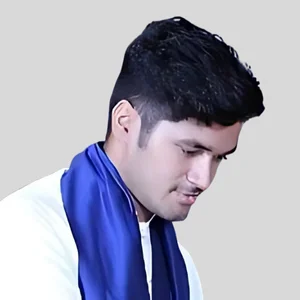

Hire The Best Propulsion Tutor
Top Tutors, Top Grades. Without The Stress!
10,000+ Happy Students From Various Universities
Choose MEB. Choose Peace Of Mind!
How Much For Private 1:1 Tutoring & Hw Help?
Private 1:1 Tutors Cost $20 – 35 per hour* on average. HW Help cost depends mostly on the effort**.
Propulsion Online Tutoring & Homework Help
What is Propulsion?
Propulsion is the mechanism by which forces are generated to move vehicles or objects by expelling mass or altering fluid momentum. It encompasses systems like rocket engines, jet turbines and ICE (Internal Combustion Engine) powerplants. NASA (National Aeronautics and Space Administration) uses advanced propulsion for satellites and deep-space missions.
Popular alternative names are thrust generation, propulsive systems, powerplants and propulsion drive. Airlines often call their jet turbines “powerplants,” while car manufacturers refer to ICE propulsion under thrust generation.
Core topics include fluid dynamics, thermodynamics, combustion processes and nozzle design. Rocket propulsion covers liquid and solid propellant engines, with SpaceX’s Merlin and Falcon 9 engines as examples. Jet propulsion delves into turbojet, turbofan, turboprop and ramjet cycles used in Concorde, Airbus A320 and military fighters. Electric propulsion studies Hall-effect thrusters and ion drives powering satellites and probes. Turbomachinery analysis examines compressors and turbines. Materials science investigates high-temperature alloys. Control systems and performance analysis ensure stability and efficiency. Testing methods range from wind tunnels to full-scale engine test stands. Environmental factors like emissions and noise are also addressed.
Propulsion history began in 13th-century China with simple gunpowder rockets used in warfare and celebrations. Konstantin Tsiolkovsky formulated the rocket equation in 1903, laying scientific foundations. In 1926 Robert Goddard launched the first liquid-fuel rocket in Auburn, Massachusetts. Frank Whittle’s turbojet engine flew in 1937, revolutionizing air travel. The V-2 rocket reached space altitudes in 1944 under von Braun’s team. 1957 saw Sputnik I orbiting Earth, igniting the Space Race and founding NASA in 1958. Apollo 11 landed humans on the Moon in 1969. Late 20th century witnessed scramjets and ion propulsion. Electric propulsion now fosters efficient satellite station-keeping, though early systems had low eficiency.
How can MEB help you with Propulsion?
Do you want help learning propulsion? We at MEB give 1-on-1 online propulsion tutoring. If you are a school, college, or university student and want top grades on your assignments, lab reports, tests, projects, essays, or dissertations, you can use our 24/7 instant online propulsion homework help. We prefer WhatsApp chat. If you don’t use WhatsApp, just email us at meb@myengineeringbuddy.com
Most of our students live in the USA, Canada, the UK, Gulf countries, Europe, and Australia.
Students come to us because some subjects are hard, they have too many assignments, the questions are tricky, or they face health or personal issues, learning difficulties, part-time work, or missed classes. They might also find it hard to keep up with their professor’s pace.
If you are a parent and your ward is finding this subject tough, contact us today to help them do well on exams and homework. They will thank you!
MEB also offers help in over 1000 other subjects. Our tutors and experts make learning easy so you can succeed in school without stress.
DISCLAIMER: OUR SERVICES AIM TO PROVIDE PERSONALIZED ACADEMIC GUIDANCE, HELPING STUDENTS UNDERSTAND CONCEPTS AND IMPROVE SKILLS. MATERIALS PROVIDED ARE FOR REFERENCE AND LEARNING PURPOSES ONLY. MISUSING THEM FOR ACADEMIC DISHONESTY OR VIOLATIONS OF INTEGRITY POLICIES IS STRONGLY DISCOURAGED. READ OUR HONOR CODE AND ACADEMIC INTEGRITY POLICY TO CURB DISHONEST BEHAVIOUR.
What is so special about Propulsion?
Propulsion is the study of how vehicles are powered and moved using engines or thrusters. It is unique because it blends physics, thermodynamics, and fluid mechanics to make jets and rockets work. Students learn about high-speed flows, combustion and how to turn fuel into thrust. No other subject so directly shapes the way aircraft and spacecraft lift off, fly and land.
Compared to other engineering subjects, propulsion offers hands-on work with engines and real machines, making it exciting and practical. Its advantage is clear career paths in aerospace, defense, and space agencies. However, it demands strong math, chemistry and careful design under extreme conditions. The complexity can be a hurdle for beginners and requires deep study, unlike more general fields with softer entry requirements.
What are the career opportunities in Propulsion?
Graduate studies in propulsion often lead to a master’s or Ph.D. in Aerospace or Mechanical Engineering, with special focus on rocket engines, jet engines, or electric propulsion. Recent trends include work on green propellants, 3D‑printed engine parts, and hybrid rocket systems. These programs deepen your skills in thermodynamics, fluid mechanics, and advanced materials.
Popular job roles include propulsion engineer, test engineer, CFD (computational fluid dynamics) analyst, and research scientist. Propulsion engineers design and improve engines, test engineers run and monitor live tests, CFD analysts simulate airflow and combustion, and research scientists explore new fuels and engine concepts. Teams often use software like ANSYS, COMSOL, or OpenFOAM.
Studying propulsion builds a strong foundation in physics and engineering. Test preparation helps you master core topics—heat transfer, gas dynamics, control systems—and practice problem‑solving under time limits. This training boosts your confidence for exams and technical interviews.
Propulsion knowledge applies to space launchers, satellites, drones, and next‑gen aircraft. It drives innovation in reusable rockets, electric thrusters for small satellites, and low‑emission jet engines. Understanding propulsion helps make safer, faster, and greener vehicles.
How to learn Propulsion?
Start by building a strong base in math, physics and basic thermodynamics. Move on to study fluid mechanics and heat transfer, then learn how different engines work—jet, rocket, turbofan. Follow a textbook chapter by chapter, solve end‑of‑chapter problems, and use simple engine simulators or lab demos to see theory in action. Make a weekly study plan, review your notes, and practice past exam questions to sharpen your problem‑solving skills.
Propulsion can seem challenging because it mixes fluids, heat, and chemistry. But with a clear study plan and consistent practice, it becomes much more manageable. Focus first on understanding core ideas—like conservation of mass and energy—before diving into complex engine cycles.
Self‑study is possible if you’re disciplined and have access to good resources. However, a tutor can answer questions quickly, keep you on track and explain tricky steps one‑on‑one. If you find yourself stuck or falling behind, a tutor often saves time and frustration.
Our MEB tutors offer 1:1 online sessions any time of day, personalized feedback on assignments, and step‑by‑step exam prep plans. We match you with an expert who guides you through tough topics, checks your work, and builds your confidence—all at affordable rates.
Most students spend about 3–6 months to build solid basics if they study 5–7 hours per week. If you’re already strong in thermodynamics and fluid mechanics, you might move faster. Keep a steady pace: set weekly goals, take regular quizzes, and review any mistakes to improve continuously.
Try MIT OpenCourseWare’s Propulsion lectures and Learn Engineering on YouTube for clear videos. Visit NASA Glenn Research Center (nasa.gov) and Khan Academy for basics. Key books include “Mechanics and Thermodynamics of Propulsion” by Hill and Peterson, “Fundamentals of Jet Propulsion” by Hill and Peterson, and “Aircraft Propulsion Systems Technology” by Saeed Farokhi. For detailed worked examples, check Prof. Anderson’s Gas Dynamics PDF and Aero Professor blog. These resources cover theory, worked problems, and real‑world engine designs to build deep understanding.
College students, parents, and tutors from the USA, Canada, the UK, Gulf countries and beyond—if you need online 1:1 tutoring 24/7 or help with assignments, our MEB tutors can guide you affordably.


















































